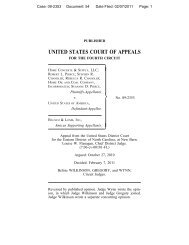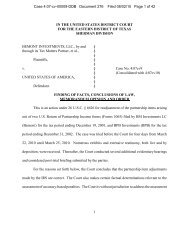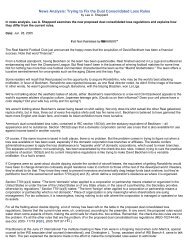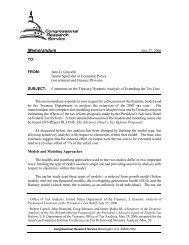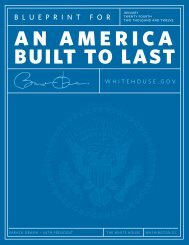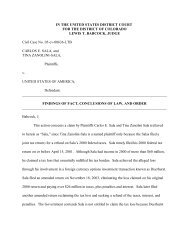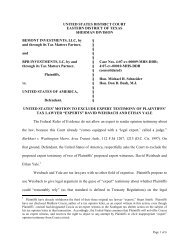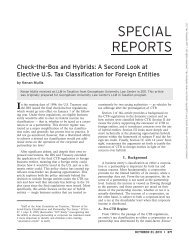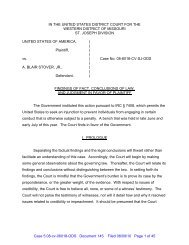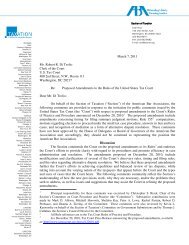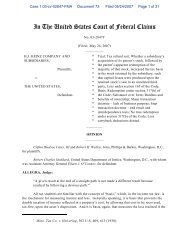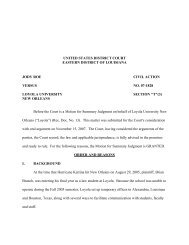1 TESTIMONY OF PROF. EDWARD D. KLEINBARD HEARING ...
1 TESTIMONY OF PROF. EDWARD D. KLEINBARD HEARING ...
1 TESTIMONY OF PROF. EDWARD D. KLEINBARD HEARING ...
- No tags were found...
You also want an ePaper? Increase the reach of your titles
YUMPU automatically turns print PDFs into web optimized ePapers that Google loves.
were not true, investors would flock to the jurisdiction offering better returns for the samerisk, until the influx of new capital drove down those returns.In turn, this means that acceptable pretax returns must be higher in high-taxcountries, so that their after-tax returns reach the global level. This is the real cost ofhigher corporate taxes, for example: it is not that investors obtain lower after-tax returns,but rather that the pool of capital invested in such businesses is smaller, because someprojects that would be feasible in a lower tax rate environment do not achieve therequired global after-tax rate of return. Investors simply decline to make theseinvestments, rather than suffer lower returns.But stateless income planning undermines this neat story. If a U.S. firm can investin a high-tax foreign country, with its high pretax returns, and then avoid paying the taxthat is associated with returns in that country, the U.S. firm can generate supersizedreturns on its money – what I call “tax rents.” 9 For technical reasons, and the Apple Inc.story notwithstanding, it often is easier as a U.S. tax matter to shift profits from a hightaxforeign country to a low-tax one than it is to shift profits from the United States to atax haven. What this means is that, when the United States turns a blind eye to statelessincome planning, it inadvertently encourages U.S. firms to prefer foreign investment overU.S. investment – not investment directly in real businesses in low-tax jurisdictions (howmany Irish pubs are there to acquire?), but rather real businesses in high-tax foreignjurisdictions, to serve as the raw feedstock for the ultimate end product: super low-taxedincome, or in other words, tax rents.The final reason to object to U.S. firms‟ avid pursuit of stateless income isinternational comity. The United States is not just a capital exporter through foreigndirect investment; it also is a host country to inbound direct investment from foreignmultinational firms. It would be foolish to think that foreign multinationals do not playthe stateless income game, with the United States as host country as the tax revenue loser.Similarly, it is a fool‟s game to imagine that we can encourage “our” multinationals togame the tax systems of other countries, while successfully defending our borders from9 Stateless Income, 11 Florida Tax Rev. 699, 752-57 (2011). The Lessons of Stateless Income, 65Tax Law Rev. 99 (2011) considers in detail how stateless income undermines the globalequilibrium story that is the cornerstone of the policy case for a territorial tax system.11



